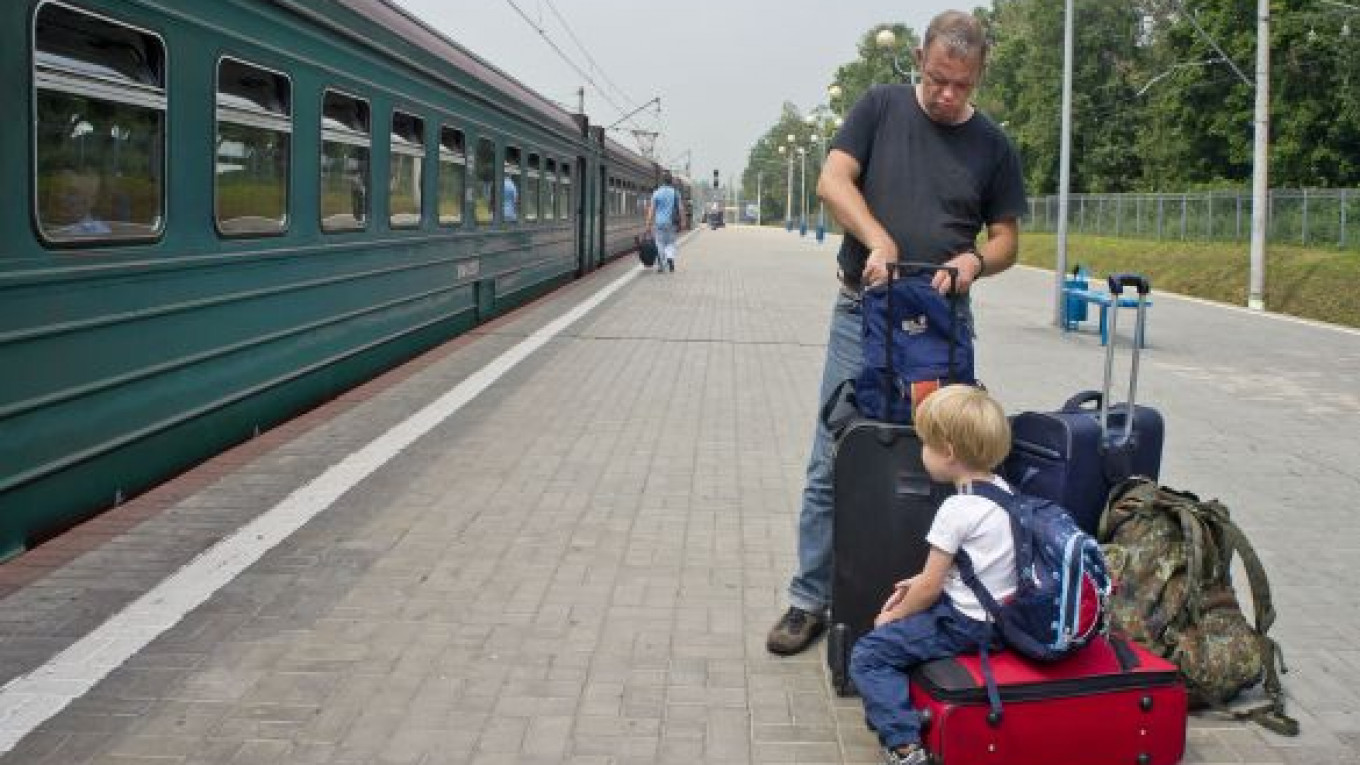While turnover increased a mere 4 percent and profits were down versus 2011 at Russian Railways, the country's largest employer and one of the biggest transportation firms in the world, expenditures are climbing, according to the company's recent annual.
Published at the end of last week, Russian Railways results showed the company generated 1.5 trillion rubles ($45 billion) of income last year, up a little more than 4 percent compared to the results of the previous year. Earnings before interest and taxes, EBITDA, corrected to exclude state subsidies, were down 10 percent compared to last year and amounted to 263 billion rubles.
Net revenue fell by over 50 percent, to 78 billion rubles compared to 169 billion rubles in 2011. The company said in a statement that low net revenue compared to the previous year was due to the fact that it sold 75 percent minus two shares in First Freight Company in 2011 for over 125 billion rubles and that had an impact on financial results.
The drop in net revenue was a result of decreased operational efficiency and a lack of cost control, said Kira Zavyalova, an expert at Investcafe analytic agency.
Operational costs of Russian Railways grew by almost 7 percent since last year, hitting 1.4 trillion rubles.
While being one of the top 5 companies in the country in terms of annual turnover, Russian Railways is also the largest employer with a staff of over a million people and salaries are the monopoly's greatest operational expenses.
Last year the company had to channel almost 650 billion rubles to cover its payroll — 57 billion rubles more than in 2011. By comparison, annual state subsidies to Russian Railways to help the company modernize rail infrastructure are just over 50 billion rubles.
Russian Railways president Vladimir Yakunin was on a modest 25th place in Forbes.ru's list of highest paid executives last year. Estimates are that he earned about $4 million last year.
The rail monopoly said in the report that this year the salaries would increase on average by almost 8 percent.
Coming second after salary expenditures, infrastructure investment by Russian Railways last year was the largest in the company's history, amounting to 584 billion rubles.
The money went to improve infrastructure, buy locomotives and make preparations for the Sochi 2014 Winter Olympics, the company said in a statement.
Russian Railways has almost completed building a new rail line and a highway connecting Sochi airport and Krasnaya Polyana ski resort, where some of the games will be held. Total outlays by the rail company in Sochi come to over 256 billion rubles.
Another big cost for Russian Railways was the purchase of a 75 percent stake in French logistics operator Gefco for 800 million euros last December. With this acquisition, the state-owned monopoly has extended its reach into the heart of Europe and expanded its ability to function as a vertically integrated transportation services provider.
Contact the author at a.panin@imedia.ru
A Message from The Moscow Times:
Dear readers,
We are facing unprecedented challenges. Russia's Prosecutor General's Office has designated The Moscow Times as an "undesirable" organization, criminalizing our work and putting our staff at risk of prosecution. This follows our earlier unjust labeling as a "foreign agent."
These actions are direct attempts to silence independent journalism in Russia. The authorities claim our work "discredits the decisions of the Russian leadership." We see things differently: we strive to provide accurate, unbiased reporting on Russia.
We, the journalists of The Moscow Times, refuse to be silenced. But to continue our work, we need your help.
Your support, no matter how small, makes a world of difference. If you can, please support us monthly starting from just $2. It's quick to set up, and every contribution makes a significant impact.
By supporting The Moscow Times, you're defending open, independent journalism in the face of repression. Thank you for standing with us.
Remind me later.






